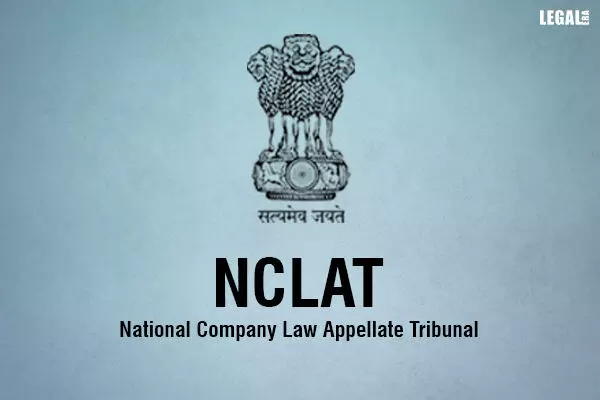- Home
- News
- Articles+
- Aerospace
- Artificial Intelligence
- Agriculture
- Alternate Dispute Resolution
- Arbitration & Mediation
- Banking and Finance
- Bankruptcy
- Book Review
- Bribery & Corruption
- Commercial Litigation
- Competition Law
- Conference Reports
- Consumer Products
- Contract
- Corporate Governance
- Corporate Law
- Covid-19
- Cryptocurrency
- Cybersecurity
- Data Protection
- Defence
- Digital Economy
- E-commerce
- Employment Law
- Energy and Natural Resources
- Entertainment and Sports Law
- Environmental Law
- Environmental, Social, and Governance
- Foreign Direct Investment
- Food and Beverage
- Gaming
- Health Care
- IBC Diaries
- In Focus
- Inclusion & Diversity
- Insurance Law
- Intellectual Property
- International Law
- IP & Tech Era
- Know the Law
- Labour Laws
- Law & Policy and Regulation
- Litigation
- Litigation Funding
- Manufacturing
- Mergers & Acquisitions
- NFTs
- Privacy
- Private Equity
- Project Finance
- Real Estate
- Risk and Compliance
- Student Corner
- Take On Board
- Tax
- Technology Media and Telecom
- Tributes
- Viewpoint
- Zoom In
- Law Firms
- In-House
- Rankings
- E-Magazine
- Legal Era TV
- Events
- Middle East
- Africa
- News
- Articles
- Aerospace
- Artificial Intelligence
- Agriculture
- Alternate Dispute Resolution
- Arbitration & Mediation
- Banking and Finance
- Bankruptcy
- Book Review
- Bribery & Corruption
- Commercial Litigation
- Competition Law
- Conference Reports
- Consumer Products
- Contract
- Corporate Governance
- Corporate Law
- Covid-19
- Cryptocurrency
- Cybersecurity
- Data Protection
- Defence
- Digital Economy
- E-commerce
- Employment Law
- Energy and Natural Resources
- Entertainment and Sports Law
- Environmental Law
- Environmental, Social, and Governance
- Foreign Direct Investment
- Food and Beverage
- Gaming
- Health Care
- IBC Diaries
- In Focus
- Inclusion & Diversity
- Insurance Law
- Intellectual Property
- International Law
- IP & Tech Era
- Know the Law
- Labour Laws
- Law & Policy and Regulation
- Litigation
- Litigation Funding
- Manufacturing
- Mergers & Acquisitions
- NFTs
- Privacy
- Private Equity
- Project Finance
- Real Estate
- Risk and Compliance
- Student Corner
- Take On Board
- Tax
- Technology Media and Telecom
- Tributes
- Viewpoint
- Zoom In
- Law Firms
- In-House
- Rankings
- E-Magazine
- Legal Era TV
- Events
- Middle East
- Africa
When Net Worth Of Transferor & Transferee Company are Highly Positive, Amalgamation will not require Consent Of Secured Creditors: NCLAT

NCLAT rules against consent of secured creditors for union, if transferor and transferee companies are sound
Allows appeal by relying on its own earlier judgment
The principal bench of the National Company Law Appellate Tribunal (NCLAT) has held that in cases where the net worth of the transferor and transferee companies are highly positive, it is not required to seek consent of the secured creditor for amalgamation.
While adjudicating an appeal filed in the Lasa Supergenerics Limited vs Harishree Aromatics & Chemicals Pvt Ltd case, the bench comprising Justice Anant Bijay Singh (judicial member) and Shreesha Merla (technical member) ruled that in place of seeking a No Objection Certificate (NOC) from the secured creditor, it was directing the secured creditor to file an objection within 30 days to the Scheme of Amalgamation.
In December 2020, Harishree Aromatics & Chemicals (transferor company) and Lasa Supergenerics (transferee company) proposed their amalgamation. Jointly, they filed an application before the National Company Law Tribunal (NCLT) for sanctioning the Amalgamation Scheme.
The two sought the dispensation of the meeting of its secured creditor, reasoning that the secured creditor would not be affected by the amalgamation, as the assets of the transferor company (after the proposed amalgamation) would be far more than its liabilities.
Vide its February 2021 order, NCLT dispensed with the meeting of the secured creditor. It further directed the transferor company to obtain a NOC from the secured creditor before the final date of the hearing. However, the transferor company filed an appeal before NCLAT, challenging the order.
The transferor company relied on the NCLAT judgment in the Mohit Agro Commodities Processing Pvt Ltd company's appeal. Therein, it was held that the dispensation and the requirement of a consent/NOC was granted in the case of amalgamation in certain cases. These included:
(i) The net worth of both companies was highly positive
(ii) The unsecured creditors were paid during business
(iii) The scheme was not prejudicial to their interests, as their liability was not reduced or extinguished, and no sacrifice was called for because of which they were not a party to the scheme.
The transferor and transferee company had sufficient and positive net worth as on 31 January 2021. This indicated there were sufficient assets to meet their respective liabilities. Also, the post-amalgamation net worth of the transferor was highly positive and sufficient to meet the liabilities of both companies.
Relying on its earlier judgment in the Mohit Agro case, the bench allowed the appeal. It modified NCLT's February 2022 that the secured creditor was directed to raise an objection, if any, to the Amalgamation Scheme within 30 days. Failing which, it would be presumed that the secured creditor had no objection to the amalgamation.



